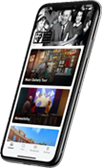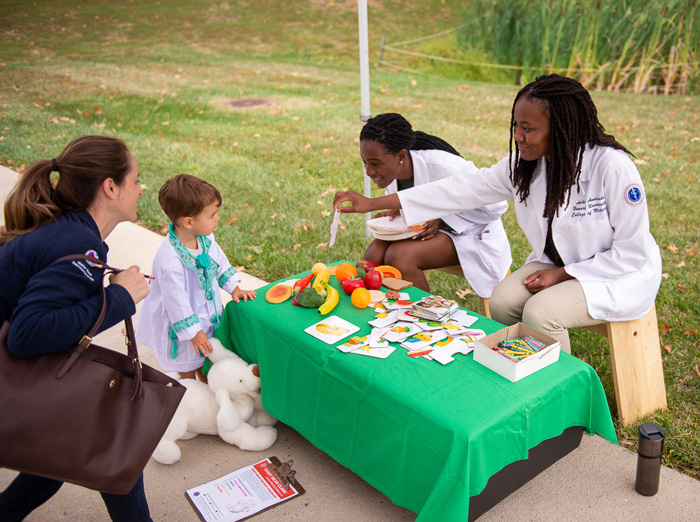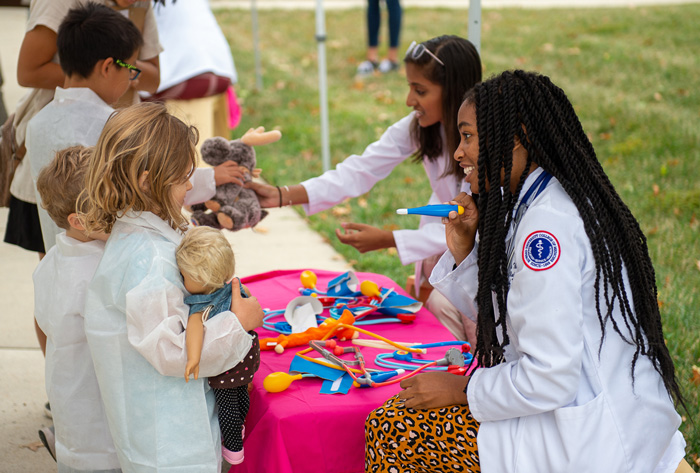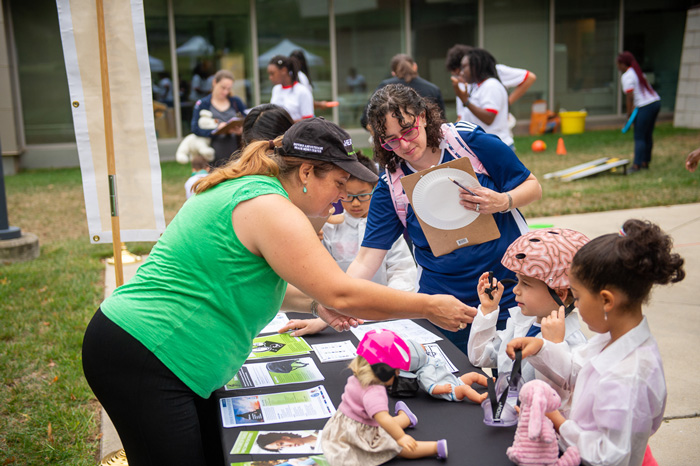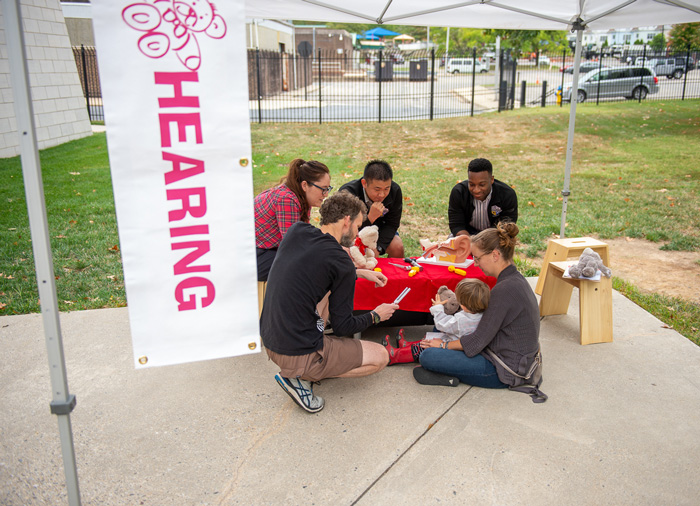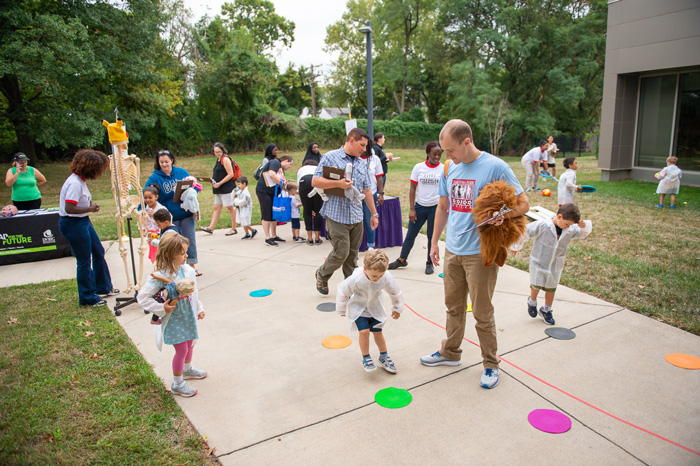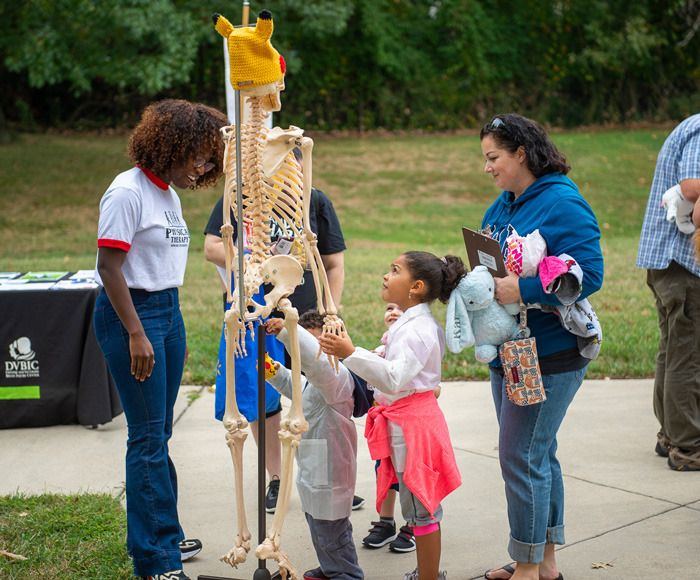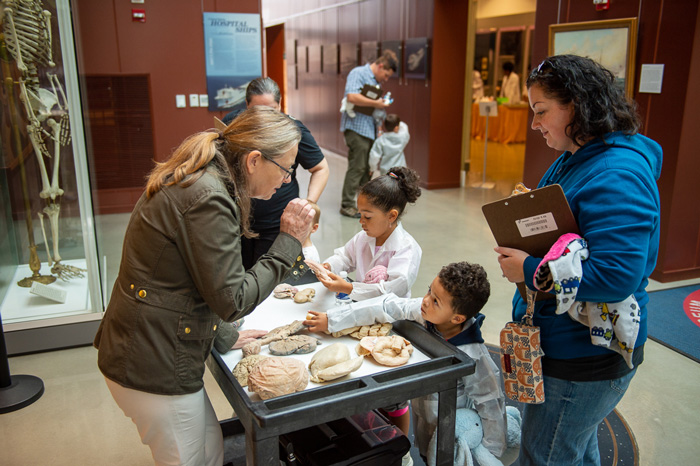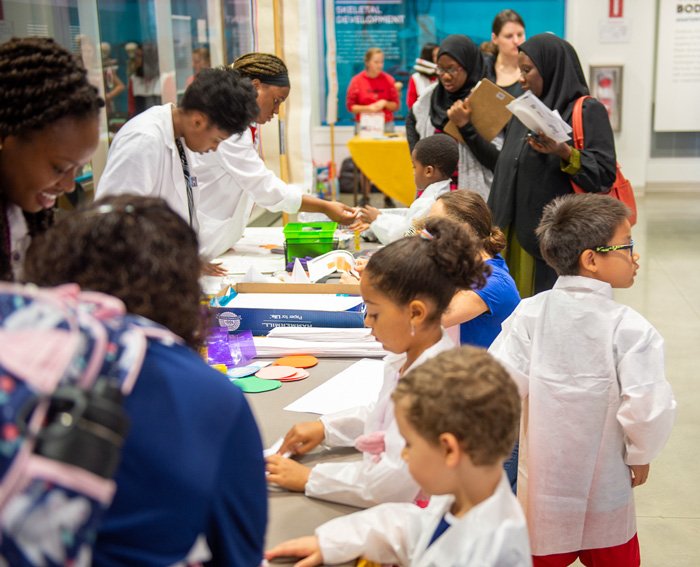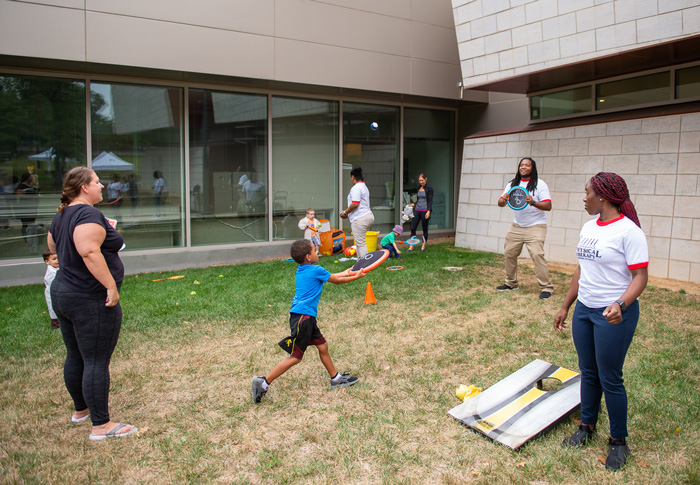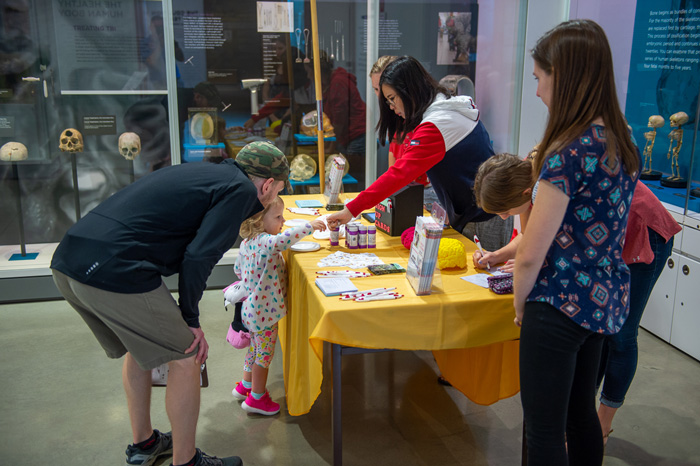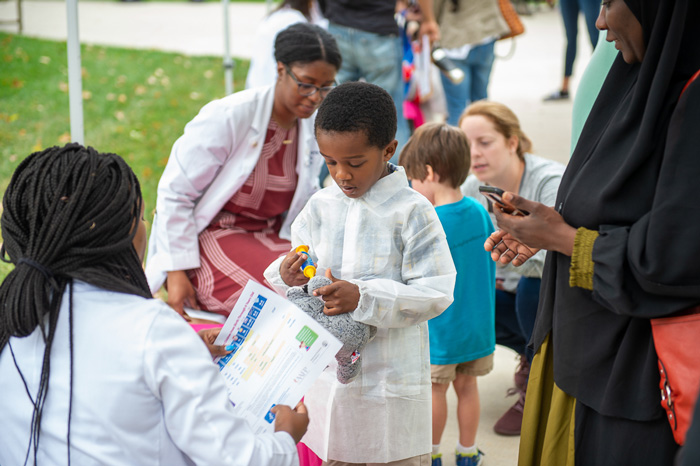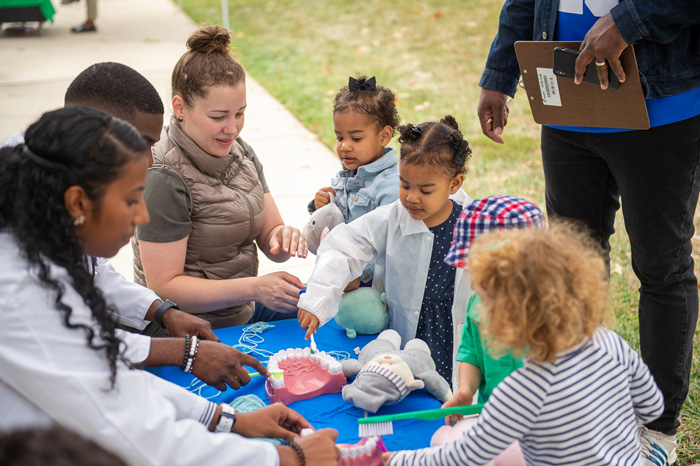Young "Doctors" Learn About the Body at 2019 Medical Museum Teddy Bear Clinic
By Jacqueline Gase
NMHM Public Affairs Coordinator
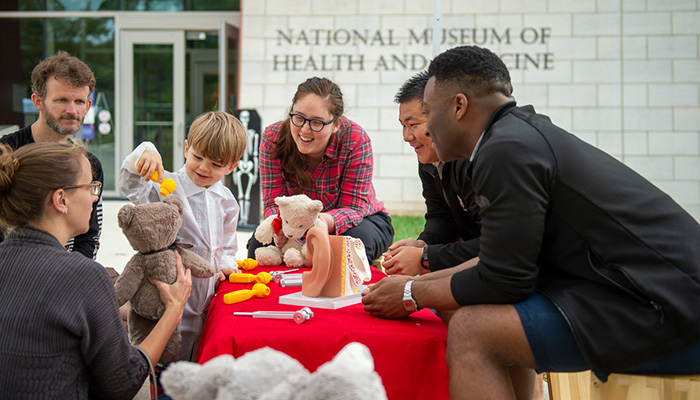
A young museum visitor looks in the ears of his stuffed animal with Walter Reed National Military Medical Center internal medicine interns U.S. Navy Lt. Alana Connell (center), U.S. Army Capt. Kevin Pak (right center), and U.S. Army Capt. Isaiah Horton (right) during the September 14, 2019, Teddy Bear Clinic at the National Museum of Health and Medicine in Silver Spring, Maryland. (NMHM photo)
Children donned lab coats and guided stuffed animal "patients" to several stations to learn about healthy habits and the body during the September 14, 2019, Teddy Bear Clinic at the National Museum of Health and Medicine. By interacting with Howard University pediatric and physical therapy students, Walter Reed National Military Medical Center (WRNMMC) internal medicine interns, University of Maryland (UMD) infant and child studies students, and a representative from the Defense and Veterans Brain Injury Center's "A Head for the Future" program, the young visitors discovered the basics of caring for their bodies by using stuffed animals as surrogates.
Most of the young "doctors" started their visit at the hearing station where WRNMMC interns used tuning forks to demonstrate different sound frequencies. While holding the tuning forks to the ears of their bears, the children learned about the inner workings of the ear and proper hearing protection, a significant topic in military medicine.
The young visitors continued their teddy bear doctor appointments at the vitals and immunizations stations, where Howard University pediatric students highlighted general medicine and disease prevention. After explaining the various instruments doctors use at a physical, the children tried the equipment on their stuffed animals by checking the temperature, blood pressure, and heartbeat along with administering shots.
Howard University pediatric students also taught the young visitors about the importance of healthy habits. Encouraging the children to "feed" their stuffed animals at the nutrition station, the medical students communicated how to build a balanced diet, emphasizing that moderation is key. After the "feeding," children visited the dental station to brush and floss their stuffed animals' teeth.
"These simple activities have a big impact in helping the children understand the procedures they see and experience when they visit a doctor's office. By explaining the process and importance of each task, the children are likely to feel more comfortable in a medical environment," said Andrea Schierkolk, public programs manager.
The most active station was led by Howard University physical therapy students. The students hosted a variety of lawn games to educate children about the importance of activity in helping strengthen muscles and bones. While the children jumped between differently colored dots on the ground in time to music, the students discussed fitness recommendations with parents.
Howard University physical therapy students advised children to drink water in addition to eating foods with sugar before activity for energy and salty snacks afterward to replenish electrolytes. They also recommended partaking in activities that require children to carry their own weight, like monkey bars, as a strengthening exercise.
Heidi Lenzini, a representative from the "A Head for the Future" initiative, was also close by, reminding children and their parents to wear protective equipment when biking or playing certain sports.
Inside the museum, children made their own doctor bags, nurse's hats, and reflective head bands with Howard University pediatric students. As the children crafted, parents learned about studies on child growth and development from University of Maryland infant and child studies students.
"While it is important for children to be comfortable visiting the doctor, we hope that through this program and our collections, they might also be inspired to consider a field in medicine, perhaps military medicine," said Gwen Nelmes, the museum's education coordinator.
The museum's public programs provide forums for informal learning that connect the mission of the Department of Defense museum with the public. For more information about upcoming events, call (301) 319-3303 or visit https://www.medicalmuseum.mil.


